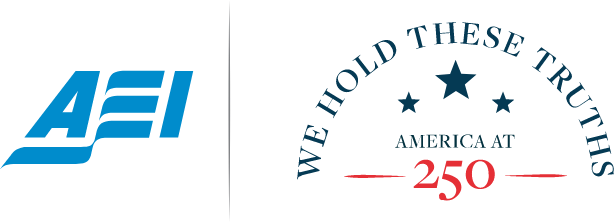Natural Rights, the Common Good, and the American Revolution
Editing the Declaration Notes
- Thomas Jefferson to Henry Lee, May 8, 1825, Founders Online, https://founders.archives.gov/documents/Jefferson/98-01-02-5212.
- See Pauline Maier, American Scripture: Making the Declaration of Independence (Vintage Books, 1998), 99–104. See also The Papers of Thomas Jefferson, ed. Julian P. Boyd, vol. 1, 1760–1776 (Princeton University Press, 1950), 413–33. For photographic reproductions of the known drafts of the document, compare Julian P. Boyd, The Declaration of Independence: The Evolution of the Text, rev. ed., ed. Gerald W. Gawalt (Library of Congress, 1999).
- Becker observes in a footnote to the insertion of “self-evident” into the Committee of Five’s draft that “it is not clear that this change was made by Jefferson. The handwriting of ‘self-evident’ resembles Franklin’s.” He never mentions this uncertainty again. Indeed, much later in his book he writes confidently, “When Jefferson submitted the draft to Adams the only correction he had made was to write ‘self-evident’ in place of ‘sacred & undeniable.’” Carl L. Becker, The Declaration of Independence: A Study in the History of Political Ideas (1922; Vintage Books, 1970), 142, 198; and Maier, American Scripture, 136.
- See Robert Ginsberg, “The Declaration as Rhetoric,” in A Casebook on the Declaration of Independence: Analysis of the Structure, Meaning, and Literary Worth of the Text, ed. Robert Ginsberg (Thomas Y. Crowell, 1967), 234–35.
- For Jefferson’s original draft of the Declaration, see The Papers of Thomas Jefferson, 1:243–47.
- Becker, The Declaration of Independence, 198.
- Maier, American Scripture, 151.
- See Maier, American Scripture, 149; and Becker, The Declaration of Independence, 208–9.
- Maier, American Scripture, 122–23.
- John Adams, The Adams Papers, ed. L. H. Butterfield (Harvard University Press, 1961), 3:357–59.
- Thomas Paine, Common Sense, in Paine: Political Writings, ed. Bruce Kuklick (Cambridge University Press, 2000), 5.
- Adams, The Adams Papers, 385–86.
- Perhaps the most lucid interpretation of the Americans’ development of “the theory of the British empire” remains that in Becker, The Declaration of Independence, ch. 3.
- See Becker, The Declaration of Independence, 168.
- Aristotle, Nicomachean Ethics, trans. Robert C. Bartlett and Susan D. Collins (University of Chicago Press, 2011), 1134b18–19. “Of the just in the political sense, one part is natural, the other, conventional.”
- The Papers of Thomas Jefferson, 1:245.
- See Becker, The Declaration of Independence, 212–23.
- The Papers of Thomas Jefferson, 1:246–47.
- The Papers of Thomas Jefferson, 1:247.
- Maier, American Scripture, 147.
- The Papers of Thomas Jefferson, 1:426.
- The Papers of Thomas Jefferson, 1:247.
- Compare Danielle Allen, Our Declaration: A Reading of the Declaration of Independence in Defense of Equality (Liveright, 2014), 115–18.
- The Papers of Thomas Jefferson, 1:426.
- The Papers of Thomas Jefferson, 1:247.
- See Danielle Allen, “The Adams Declaration: A Guide for Our Times,” in Democracy and the American Revolution, ed. Yuval Levin et al. (AEI Press, 2024).
- John Adams, “Thoughts on Government,” in The Political Writings of John Adams, ed. George W. Carey (Regnery, 2000), 483.
- Thomas Jefferson to Roger Chew Weightman, June 24, 1826, Founders Online, https://founders.archives.gov/documents/Jefferson/98-01-02-6179.
- John Adams to John Whitney, June 7, 1826, Founders Online, https://founders.archives.gov/documents/Adams/99-02-02-8023.
- John Adams to Charles Adams, January 9, 1794, in John Adams: Writings from the New Nation, 1784–1826, ed. Gordon S. Wood (Library of America, 2016), 300–1.
